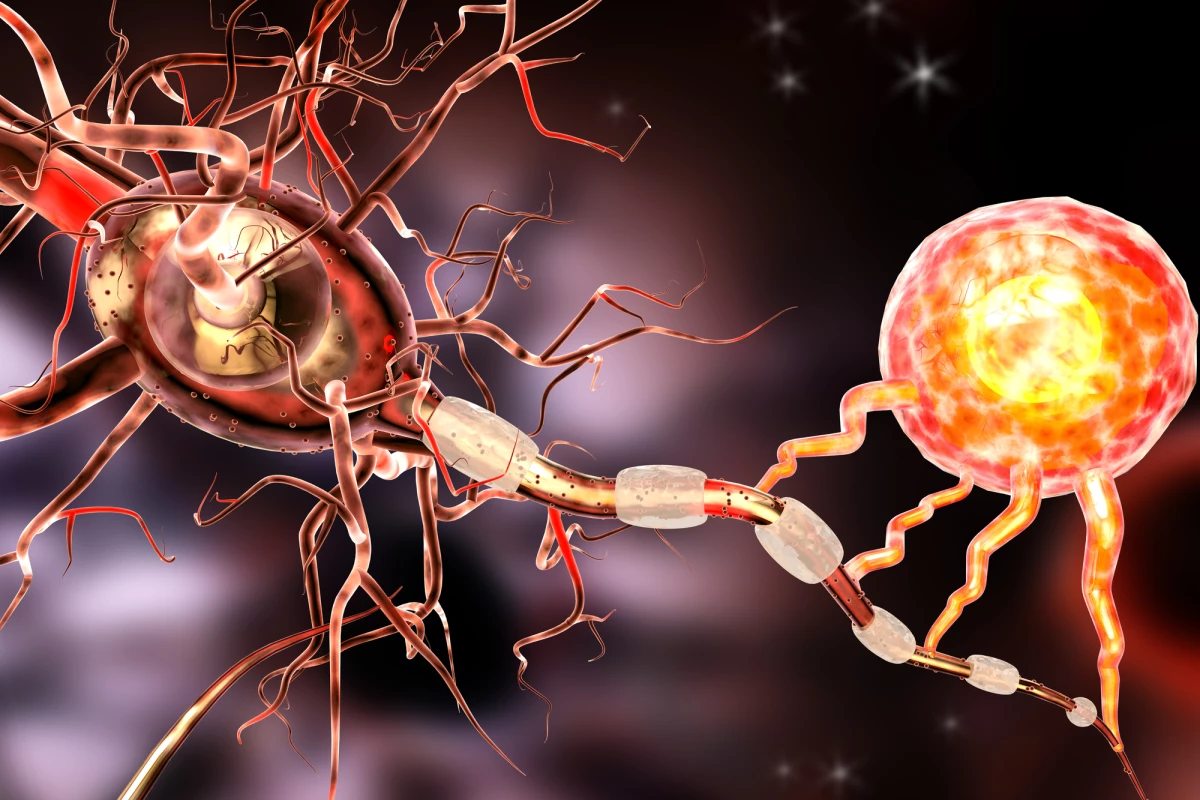As with many autoimmune diseases, chronic inflammation is linked to the development of multiple sclerosis (MS), a condition that attacks the sheaths around nerves and can lead to muscle weakness and spasms, difficulty walking or moving, stiffness, pain and more.
While current methods of dealing with the disease focus on symptom management, researchers at the University of Virginia (UVA) were interested in seeing if the inflammation-causing mechanism could be turned off at its source. So, they investigated the microbes inside the guts of mice and found a chemical regulator that leads to an inflammatory cascade. They also figured out how to switch it off.
Increasingly, scientists are uncovering the ways in which the gut microbiome can impact more than just digestive health. Last year alone, we saw studies linking the colony of bacteria living in our intestines to depression, motivation to exercise, weight gain, rheumatoid arthritis and overconsumption of alcohol. And earlier this year, reports emerged about ways in which gut microbiota could have an impact on diseases including Alzheimer's and, potentially, diabetes. So it made sense that when the UVA researchers wanted to find a way to interrupt the inflammatory response that leads to MS, they would turn to the microbiome.
Using mice, they found that a chemical regulator found in the intestine walls could direct gut bacteria to produce inflammatory compounds. The regulator is called aryl hydrocarbon receptor (AHR) and it is produced by T cells, a type of white blood cell that battles invaders to the body including allergens, diseases and cancer. Interestingly, researchers investigated the effect that regulating T cells called Tregs could have on MS in 2021, and found that inhibiting a protein called Piezo1 could allow the cells to decrease inflammation in mouse models.
This time around though, the study targeted the inflammation-causing AHR. When the researchers blocked it in the guts of mice, they found that the microbiome was able to produce compounds such as bile salts and short-chain fatty acids that made it difficult for the T cells to thrive. As a result, inflammation ramped down dramatically – to the point that the mice actually recovered from their disease.
The scientists point out that more research will be required to see if the findings translate to human subjects. But the current study at least opens a pathway for future investigation that could treat MS in a different way.
“We are approaching the search for multiple sclerosis therapeutics from a new direction,” said Andrea Merchak, a doctoral candidate in neuroscience at UVA and lead author of the study. “By modulating the microbiome … we are making inroads in understanding how the immune response can end up out of control in autoimmunity. We can use this information to find early interventions.”
Merchack also said that directly targeting AHR with medication could be a more effective way to enhance inflammation-fighting activity in the gut rather than through using interventions such as probiotics or drugs that hamper the immune system in MS patients.
"Due to the complexity of the gut flora, probiotics are difficult to use clinically," she said. "This receptor can easily be targeted with medications, so we may have found a more reliable route to promote a healthy gut microbiome. Ultimately, fine-tuning the immune response using the microbiome could save patients from dealing with the harsh side effects of immunosuppressant drugs."
As the research continues, the hope is that the discovery could lead to novel treatments of other autoimmune diseases.
The research was published in the journal PLOS Biology.
Source: UVAHealth





